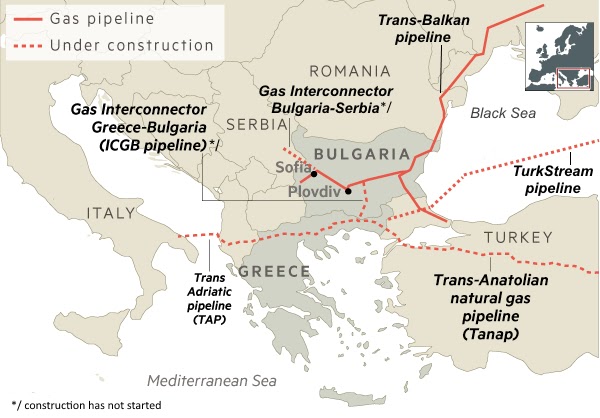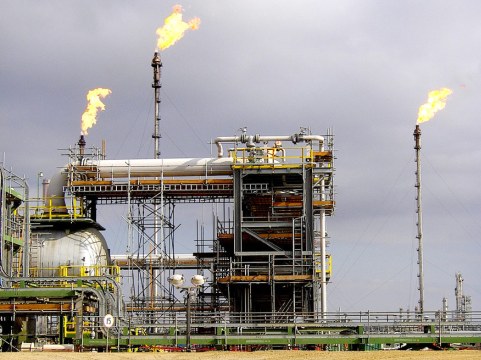The interconnection Bulgaria – Serbia, through which Serbia will be able to receive Azerbaijani gas, should be put into operation in 2022.
.jpg)
This was confirmed by the energy ministers of the two countries Temenuzhka Petkova and Alexander Antic, Trend reports citing Bulgaria’s Energy Ministry.
The sides noted that building the missing infrastructure is a key condition for achieving energy security and competition in gas supplies for the Southeast European region.
Petkova informed her Serbian counterpart about the development of the interconnector Greece-Bulgaria (IGB) project.
The goal is to commission the interconnector in 2020, so that to ensure the contracted delivery of 1 billion cubic meters of gas per year from Azerbaijan’s Shah Deniz 2 to Bulgaria, said the ministry.
This interconnection will for the first time link the gas systems of Bulgaria and Serbia.
The interconnector will allow for the transfer of between 1 and 1.8 billion cubic metres of natural gas annually from Bulgaria to Serbia and 0.15 billion cubic metres from Serbia to Bulgaria.
The new gas pipeline will provide a new supply route from Bulgaria not only to Serbia, but also to other parts of the South-East European region. This will enable access to liquefied natural gas from Greece, Azerbaijani gas from the Southern Gas Corridor, as well as gas from Black Sea offshore production, and ensure improved integration of these sources into the EU’s internal energy market.
The groundbreaking ceremony for IGB was held in Kirkovo, Bulgaria May 22 this year.
IGB is a gas pipeline, which will allow Bulgaria to receive Azerbaijani gas, in particular, the gas produced from Azerbaijan’s Shah Deniz 2 gas and condensate field. IGB is expected to be connected to TAP via which gas from the Shah Deniz field will be delivered to the European markets.
The initial capacity of IGB will be 3 billion cubic meters of gas.








